Top-Rated Debt Collection Agency in Uganda
Your trusted debt collection agency in Uganda. Submit claims for swift recoveries and learn local practices through our extensive, user-friendly guide. No upfront fees.






The ultimate guide about debt collection in Uganda
Why you can trust this guide
At Debitura, we uphold the highest standards of impartiality and precision to bring you comprehensive guides on international debt collection. Our editorial team boasts over a decade of specialized experience in this domain.
Questions or feedback? Email us at contact@debitura.com — we update this guide based on your input.
Debitura By the Numbers:
- 10+ years focused on international debt collection
- 100+ local attorneys in our partner network
- $100M+ recovered for clients in the last 18 months
- 4.9/5 average rating from 621 reviews
Expert-led, locally validated
Written by Robin Tam (16 years in global B2B debt recovery). Every page is reviewed by top local attorneys to ensure legal accuracy and practical steps you can use.
Contributing local experts:
Last updated:
Explore the ins and outs of Uganda's debt collection with confidence. Debitura's unique blend of local expertise and international experience simplifies the process, providing you with a thorough, easy-to-understand guide to effective debt recovery in Uganda.
Understanding the Masters of Debt Recovery in Uganda
In navigating the complex landscape of Uganda's debt recovery, familiarity with the key players and their roles is essential. These key actors, ranging from debt collection agencies, bailiffs to debt collection lawyers each helm specific roles, moulding a concerted effort to reclaim debts under Uganda's stringent legal norms.
Debt Collection Agencies in Uganda
In Uganda, debt collection agencies play a crucial role in bridging the gap between creditors and debtors, especially when traditional repayment dialogues falter. These agencies are instrumental in the pre-legal stages of debt recovery, employing a variety of strategies like direct communication through calls, emails, and letters, aiming to facilitate amicable resolutions. They operate under the stringent framework of Uganda's consumer protection laws, ensuring their methodologies are devoid of harassment or intimidation, in compliance with Law 21.320. A creditor might consider engaging a collection agency when direct efforts to recover debt remain unfruitful, marking a professional escalation. Despite their expert tactics, these agencies face limitations — they cannot enforce collection through legal mechanisms themselves but can negotiate settlements and plan repayment schedules. Their intervention saves valuable time and resources for creditors, providing a viable path to debt recovery while ensuring consumer rights are safeguarded.
The Role of Lawyers in Debt Recovery in Uganda
In Uganda, the involvement of lawyers is crucial in the debt recovery process, especially when a creditor's efforts to secure payment through amicable channels have been exhausted. Lawyers step in to provide expert guidance and representation in both pre-legal collection efforts and formal legal proceedings. Their tasks range from drafting legal notices that compel payment, negotiating settlements, to filing lawsuits and representing creditors in court. A creditor should consider engaging a lawyer when faced with non-responsive debtors or when dealing with significant amounts that justify the costs of legal action. Moreover, lawyers play a pivotal role in navigating Uganda’s Debt (Summary Recovery) Act, handling execution proceedings, and ensuring creditors' rights are preserved during bankruptcy filings. With their comprehensive understanding of Ugandan legal mandates regarding debt collections, lawyers are indispensable allies for creditors seeking judicial enforcement of their claims.
The Role of Bailiffs in the Debt Recovery Process in Uganda
In Uganda, bailiffs are critical figures in the enforcement of debt collection, operating as the judicial system's extended arms to enforce court orders when debtors fail to fulfill their obligations voluntarily. Their primary role encompasses a range of tasks including the execution of asset seizures, evictions, or serving legal notices on behalf of a creditor who has obtained a court judgment. The engagement of a bailiff signifies the transition from an amicable collection phase to a more stringent legal enforcement stage.
To involve a bailiff in the debt recovery process, creditors must first obtain a court order or judgment establishing the debtor's liability. This legal prerequisite ensures that the bailiff's actions, such as asset seizures or evictions, are grounded in a judicial mandate. It's essential that these steps align with Uganda's legal frameworks, particularly under the Uganda Debts (Summary Recovery) Act, which outlines the debt enforcement process facilitated through the magistrate's court.
Given their empowered role, bailiffs in Uganda adhere to strict procedural and ethical standards to ensure a fair balance between efficient debt recovery and safeguarding debtor's rights. This ensures both the effectiveness of the debt recovery process and the protection of all parties' legal rights.
Understanding Uganda's Legal Framework for Debt Collection
Navigating through Uganda's debt collection process demands an in-depth knowledge of its intricate laws. Abiding by these regulations is key, enabling not just efficient debt recovery, but also fostering fair operations, a crucial stepping stone towards maintaining robust and honest business relationships.
The Regulatory Environment and Civil Court System in Uganda
In Uganda, the civil court system is a layered structure designed to address various legal matters efficiently and equitably.
- At the base of the hierarchy are Magistrates' Courts, spread across the country. These courts, including specialized Small Claims Courts, handle civil disputes of a smaller quantum, including debt recovery cases where the claim does not exceed ten (10) million Uganda shillings.
- Moving up, the High Court of Uganda has broader jurisdiction, handling more complex and higher-value cases. Its Commercial Division often deals with larger civil disputes, including significant debt recovery cases.
- At the apex are the Court of Appeal and the Supreme Court of Uganda, which primarily act as appellate courts. They review decisions from lower courts, ensuring adherence to the law and providing finality in legal disputes.
Understanding the hierarchical structure is key for international creditors pursuing debt collection in Uganda, as the appropriate court directly impacts the strategy and procedures to be followed. Debitura, leveraging local legal expertise, navigates this system effectively, enhancing the chances of successful debt recovery.
Key Legislation Impacting Debt Collection in Uganda
In Uganda, debt collection and related activities are governed by a framework of laws and regulations tailored to protect both creditors and debtors, ensuring fair and efficient debt recovery processes.
- The Uganda Debts (Summary Recovery) Act - This Act allows for the summary recovery of civil debts through competent magistrates, streamlining the litigation process for faster resolution.
- Bankruptcy Act - Governs bankruptcy proceedings, setting forth the process for declaring a debtor bankrupt, liquidating assets, and prioritizing the payment of creditors.
- The Civil Procedure Act and The Civil Procedure Rules - These set the overarching framework for all civil litigation in Uganda, including debt recovery suits, and establish the procedures for obtaining court orders and enforcing judgments.
To navigate Uganda's legal landscape efficiently for debt collection, it's crucial for creditors to familiarize themselves with these specific Acts and regulations. By leveraging the legal instruments available, creditors can optimize their debt recovery efforts while maintaining compliance and fairness in their practices.
Consumer Protection from Unfair Collection Practices in Uganda
In Uganda, protecting consumers in the context of debt collection is central to maintaining fair financial practices and upholding consumer rights.
- The Uganda Debts (Summary Recovery) Act prescribes clear procedures for the recovery of debts, ensuring protection from abusive practices by detailing transparent collection methods.
- Consumer protection laws in Uganda require debt collection agencies to provide written notice of the debt, including the amount owed and informing the consumer of their right to dispute the debt.
- Regulations limit debt collection practices to prevent harassment, intimidation, or deceptive tactics, promoting fairness and respect in the debt recovery process.
- Consumers have the right to file complaints against abusive debt collection tactics to relevant authorities, seek legal assistance, and receive support from consumer protection agencies.
- The Small Claims Procedure offers an expedited process for resolving disputes involving smaller amounts, ensuring quick and cost-effective justice for consumers facing debt-related challenges.
Uganda’s legal frameworks, including the Uganda Debts (Summary Recovery) Act and consumer protection laws, aim to safeguard consumer interests against unfair debt collection practices. By emphasizing transparency, fairness, and respect, these regulations provide a balanced approach to debt recovery, ensuring both creditor rights and consumer protection.
Navigating Amicable Debt Collection in Uganda
Explore the intricacies of amicable or pre-legal debt collection in Uganda. This involves resolving outstanding debts without the court's interference. We delve into the strategies, key considerations and the general process, which is generally expedited and streamlined when executed through a debt collection agency.
- Consumer Protection Laws: Emphasizes respect for debtor integrity, rights, and privacy in Uganda.
- Debt Collection Process: Involves non-judicial actions such as calls, letters, and personal visits for debt notification.
- Regulation Compliance: Requires adherence to consumer protection guidelines, limiting contact frequency to prevent harassment.
- Benefits of Amicable Recovery: Offers faster debt recovery, cost savings, reduced friction, and maintained positive relationships.
- Debt Collection Strategies: Utilizes multiple communication channels, centralized efforts, and empathetic communication.
- Statute of Limitations: Dictates a timeframe after which debts become time-barred and non-recoverable through legal means.
- Rights of Debtors: Includes fair treatment and protection from abusive practices under the Fair Debt Collection Practices Act.
- Interest and Fees: Allows for agreed upon interest rates, emphasizing the need for clarity and agreement in debt collection processes.
- When to Use Amicable Recovery: Best for efficient, cost-effective recovery aiming to preserve relationships before debts are significantly overdue.
- Transition to Judicial Debt Recovery: Recommended if amicable efforts fail within a reasonable period, considering the statute of limitations.
Amicable Debt Collection in Uganda
In Uganda, amicable debt collection serves as a bridge between creditors and debtors, focusing on empathy, negotiation, and understanding. This method empowers creditors to pursue overdue payments while preserving the dignity and rights of the debtor, reflecting a commitment to ethical practices and consumer protection. By prioritizing a positive relationship, amicable debt collection not only aids in recovering dues but also upholds the economic and social fabric of Ugandan society.
Commencing with amicable collection strategies is advisable for straightforward, non-disputed claims, avoiding the need for time-consuming and often costly legal proceedings.
The Collection Agency's Role in Amicable Debt Recovery in Uganda
Debitura, with its decade-long expertise in Uganda, plays a crucial role in facilitating amicable debt recovery. The agency's approach begins with a meticulous identification of debts and connecting with debtors through respectful communication, leveraging methods such as phone calls, emails, and personal visits. By employing a professional, unbiased stance, Debitura ensures a higher probability of successful recovery, mediating effectively to honor both parties' interests without jeopardizing their relationship.
Advantages of Amicable Debt Resolution
Amicable resolution is a win-win for all involved: creditors are spared the financial burden of court proceedings and maintain valuable business relationships, while debtors are offered realistic repayment terms. This approach emphasizes mutual respect and understanding, fostering an environment conducive to meeting financial obligations. By adhering to consumer protection laws, such as those outlined in Law 21.320, amicable collection in Uganda also ensures the integrity, personal rights, and privacy of consumers, enhancing trust in the recovery process.
Transitioning from Amicable to Legal Collection in Uganda
Despite the benefits of amicable collection, certain situations may necessitate legal action. Indicators that it's time to transition include consistent non-responsiveness, repeated broken promises, or deliberate attempts by the debtor to evade repayment. Transitioning to legal proceedings is a significant step and should be considered a last resort after amicable efforts have been exhausted. The decision should be taken with a full understanding of the potential costs and duration of legal action, underscoring the importance of a judicious approach in debt recovery in Uganda.
Navigating Legal Debt Recovery in Uganda
Often, amicable approaches to debt recovery don't yield results, leading to legal pursuit of the claim, or judicial debt collection. This method, which relies on a court-issued order and the aid of bailiffs, typically requires legal assistance. This overview specifically explores Uganda's judicial debt collection process.
- Hierarchical Court System: Cases assigned based on complexity and value, impacting debt recovery strategy.
- Consumer Protection: Requires written debt notice and forbids abusive collection practices for compliance.
- Legal Framework: Offers court applications or commercial agencies, with significant laws like Uganda Debts (Summary Recovery) Act.
- Statute of Limitations: Creditors have a six-year window to act on unpaid debts, implicating recovery strategies.
- Court Order Processes: Involves a written complaint, summons issuance, and possible payment orders or imprisonment.
- Small Claims Procedure: Streamlined option for claims under ten million Uganda shillings, excluding certain disputes.
- Claim Size and Court Choice: Claims under UGX 50,000,000 handled by Magistrates Court, impacting strategy and outcomes.
- Execution Proceedings: Allows seizure and sale of debtor's assets, with the help of enforcement officers for recovery.
- International Considerations: Requires local legal representation for foreign creditors, due to statutory nuances.
- Consumer Protection and Economic Impact: Initiatives aim for transparency and prevent abusive practices, guiding collection strategies.
Shifting from Amicable to Judicial Debt Collection in Uganda
In Uganda, the debt collection process can begin amicably, using commercial collection agencies or lawyers to negotiate repayments. However, when these efforts fail, due to disputes or the need for debt enforcement, the process escalates to judicial debt collection. This transition underscores the importance of legal representation to navigate Uganda’s complex legal system and to ensure that creditors' rights are upheld during the judicial recovery process.
The Importance of a Formal Judgment in Uganda
A court order is essential in Uganda for the formal recognition and enforcement of a debt. Obtaining such an order involves initiating legal proceedings under laws such as the Uganda Debts (Summary Recovery) Act. This Act allows creditors to efficiently pursue civil debts through magistrates of competent jurisdiction. The importance of a formal judgment lies in its enforceability; once a creditor obtains a court order, they can enforce their claim by seizing the debtor's assets, thus ensuring debt recovery. The process involves submitting a written complaint, followed by a magistrate issuing a summons and conducting a trial as per the Magistrates Courts Act.
Determining the Appropriate Court in Uganda
The court chosen for a debt recovery case in Uganda depends on several factors, including the size and complexity of the claim. Small claims, defined as civil claims not exceeding ten (10) million Uganda shillings, are usually handled by the Small Claims Procedure, which offers a streamlined process. For larger debts, the jurisdiction falls under the Magistrates Court for claims below UGX 50,000,000 and the High Court for claims exceeding this threshold. This tiered approach ensures that cases are heard in a court equipped to handle their specific requirements, balancing efficiency with justice.
Small Claims Court in Uganda
The Small Claims Procedure in Uganda represents a streamlined legal pathway designed for the expedited and efficient resolution of civil disputes involving claims not exceeding ten million Uganda shillings. Exclusively accessible at Chief Magistrates courts situated in numerous districts across Uganda, this procedure provides an essential forum for individuals and small businesses to address minor financial disputes without the burdens of more complex and time-consuming legal processes. Notable for its simplicity, the Small Claims Procedure prohibits the involvement in family disputes, defamation, wrongful imprisonment, and claims against the government, among others. This procedural avenue is notably advantageous, offering lower litigation costs and a quicker resolution timeline, hence serving as a pragmatic option for straightforward debt recovery and dispute resolutions. Its implementation underscores Uganda's commitment to accessible justice, catering specifically to less significant, yet equally important, financial disputes that are integral to the economic fabric of society.
Ordinary Proceedings in Uganda
In Uganda, ordinary proceedings represent the traditional legal course for pursuing more complex and higher-value debt recovery cases, distinct from the expedited Small Claims Procedure. Designed to handle claims exceeding ten million Uganda shillings, these proceedings facilitate the resolution of disputes that require a thorough examination, including intricate contractual disagreements or sizable debt recovery cases. A significant advantage of ordinary proceedings is their capacity to accommodate comprehensive legal challenges and disputes, offering a structured environment for fair and detailed adjudication. This procedural path demands legal representation due to the complexities and formal requirements inherent in navigating Uganda's judicial system. Governed by the Civil Procedure Rules and the Uganda Debts (Summary Recovery) Act, ordinary proceedings underscore the importance of skilled legal counsel to effectively present and argue cases in court. This requirement underscores the procedural and strategic complexities of ordinary proceedings, aimed at ensuring that both creditors and debtors receive judicious consideration of their claims and defenses in a formal legal setting.
Understanding Debt Enforcement in Uganda
Upon securing a judicially applied court order for a debt in Uganda, you acquire the ability to implement this decree — a crucial phase known as debt enforcement. Supervised by official bailiffs, it permits the creditor to confiscate the debtor's assets, assuring the realization of their due claim.
- Legal Framework: Governed by the Uganda Debts (Summary Recovery) Act, outlining procedures for civil debt recovery through magistrate's courts.
- Court Order Requirement: A court order or written proof of debt is essential for initiating debt enforcement actions in Uganda.
- Debtor Consequences: Default in payment may lead to penalties, including imprisonment under specific conditions stated in the law.
- Amicable vs. Judicial Collection: Debitura emphasizes initial amicable collection efforts before resorting to judicial debt enforcement.
- Asset Seizure Legalities: Asset seizure in Uganda is guided by Anti-Terrorism Regulations, enabling the freezing and seizure of assets related to criminal activities, including terrorism.
- Garnishment Rights: Salary embargoes in Uganda allow for the seizure of amounts exceeding the legal minimum wage, with stern regulations to protect debtor's rights.
- International Case Handling: Agencies like Debitura provide international creditors with local expertise and assistance in navigating Uganda's legal system for debt recovery.
- Consumer Protection: Regulations in Uganda ensure protection against abusive practices, with prohibitions on harassment and misleading tactics by debt collectors.
- Minimal Living Standards: Ugandan law protects a portion of a debtor's income and essential assets, ensuring the balance between creditor rights and debtor welfare.
The Integral Role of the Judiciary in Uganda's Debt Enforcement
In Uganda, the enforcement of debts is meticulously regulated, ensuring both creditor's rights to reclaim what is owed and the debtor's protection against undue hardship. This balance is governed by the Uganda Debts (Summary Recovery) Act, which outlines the procedures within the magistrate's court system for the summary recovery of civil debts. It's essential for creditors to familiarize themselves with the intricacies of this legal landscape, including understanding which court their claim falls under, as jurisdiction varies with the amount involved.
Initiating Debt Recovery: Steps and Considerations
The debt enforcement pathway in Uganda commences with the creditor lodging a claim backed by an enforceable title. This title could be a formal agreement or a judicial decision that unequivocally establishes the debtor's financial obligation. Following this, the court assesses the claim, and if deemed valid, issues an order for the debtor to fulfill the obligation. Noteworthy is the fact that the legal framework in Uganda, influenced by English common law, places a significant emphasis on fairness, ensuring that debtors are accorded their right to challenge or object to enforcement actions.
Practical Steps in Enforcement and the Role of Bailiffs
Once a court order is in place, bailiffs (or enforcement agents) play a pivotal role in actualizing debt recovery. They are authorized to locate and seize the debtor's assets, which may include real estate or vehicles, albeit with strict guidelines to protect the debtor’s essential living needs. The seized assets are typically sold through auctions, with proceeds used to settle the creditor's claims. It is a process that demands precise compliance with the legal procedures outlined by Ugandan law, safeguarding the interests of all parties involved.
Navigating Costs and Legal Assistance
Embarking on the journey of debt enforcement in Uganda incurs various costs, including court fees, bailiff charges, and possible expenses for legal representation. These costs can fluctuate based on the complexity and length of the case. It is crucial for creditors to grasp the implications of these costs and prepare accordingly. Moreover, engaging knowledgeable legal counsel can provide invaluable guidance through this intricate process, ensuring adherence to the legal framework and enhancing the chances of a favorable outcome.
Consumer Protection and Ethical Debt Collection
Uganda's commitment to fairness extends beyond the judicial system to encompass consumer protection within the debt collection process. Innovations for Poverty Action (IPA) emphasizes the importance of safeguarding consumers from unfair practices, underscoring the necessity for debt collection agencies to operate transparently and responsibly. This includes adhering to legal requirements such as providing written notice of the debt and observing restrictions against abusive collection tactics. It is a testament to Uganda's holistic approach to debt enforcement, one that values legal integrity, consumer rights, and ethical recovery practices.
Debitura, with its extensive experience and ethical approach, aligns closely with Uganda's legal and moral standards in debt recovery. Offering services that include amicable collection efforts, legal collections, and debt enforcement, Debitura stands as a pivotal ally for creditors navigating the complexities of debt recovery in Uganda. The focus on fairness, combined with a risk-free engagement model, underscores Debitura's commitment to successful, yet conscientious, debt collection.
Understanding Insolvency Proceedings in Uganda
A situation where a debtor is unable to fulfill their financial liabilities as they become due results in insolvency. This scenario often makes traditional recovery actions such as asset seizure via court orders impractical due to the lack of recoverable assets. In such cases, bankruptcy proceedings could provide a vital alternative. They seek to methodically liquidate the debtor's available assets and offer a final avenue to procure possible repayment for unsettled claims.
- Initiation Condition: A creditor's petition succeeds if the court is convinced of the debtor's financial difficulties leading to non-payment.
- Asset Preservation: Post-bankruptcy application, courts take immediate steps to secure the company's assets for fair distribution.
- Investigation Process: The courts thoroughly investigate the financial status of the company to identify the reasons behind its insolvency.
- Trustee Appointment: Upon declaring bankruptcy, a trustee is appointed to manage and distribute the company's assets to approved creditors.
- Secured Creditors Exception: Secured creditors may enforce their security interests even after bankruptcy declaration, unlike other creditors.
- Required Documentation: Documents such as invoices, contracts, and correspondence are essential for initiating bankruptcy proceedings.
- Document Translation: All required documents must be translated, underscoring the importance of language conformity in legal submissions.
- Expected Duration: Bankruptcy proceedings can range between two to three years, varying on a case-by-case basis.
The Insolvency Framework and Proceedings in Uganda
Handling financial distress efficiently is crucial in Uganda's evolving economic landscape. The country's legal framework offers structured insolvency proceedings aimed at efficiently addressing situations where businesses or individuals cannot meet their financial commitments. Predominantly governed by the Insolvency Act 2011, these provisions facilitate a fair and orderly process for restructuring financial affairs or liquidating assets to satisfy creditor claims. The initiation of insolvency can be done by either the debtor, manifesting an acknowledgment of their incapacity to sustain financial obligations, or creditors, whose receivables are at risk. This fundamental mechanism is designed to protect the interests of all parties involved and foster economic stability by ensuring debts are resolved in a transparent and equitable manner.
Creditor Engagement and Debt Recovery in Uganda
In Uganda's insolvency framework, the rights of the creditors and the prioritization of their claims are meticulously outlined, providing clarity on the recovery process. Creditors are classified into various tiers, with secured claims generally taking precedence over unsecured ones. This hierarchy significantly influences the potential for debt recovery, making it imperative for creditors to register their claims promptly and participate actively in the insolvency process. Involvement can range from serving on creditors' committees to negotiating reorganization plans, thereby increasing the likelihood of recouping their financial outlays. Additionally, the framework encourages creditors to engage in the process by offering the opportunity to influence decision-making, particularly in the crafting and approval of reorganization plans that aim to revive insolvent entities whilst safeguarding creditor interests.
Navigating Costs and Durations
The insolvency trajectory in Uganda, while structured, can be intricate, with varying costs and timelines. These aspects are influenced by multiple factors, including the complexity of the debtor's financial landscape, the extent of creditor claims, and any arising legal challenges. Costs associated with insolvency proceedings—encompassing court fees, administrative expenses, and professional service charges—are typically borne by the debtor's estate, thereby impacting the net recoverable assets for creditors. Furthermore, the duration of insolvency processes, potentially stretching across extensive periods, mandates that creditors and debtors alike brace for a protracted recovery phase. Understanding these procedural dynamics is essential for managing expectations and optimizing the strategies for navigating insolvency in Uganda.
Find a Local Debt Collection Lawyer
Need court-ready representation? Share your case once and receive up to three proposals from vetted litigation attorneys—free, fast, and with no commitment.
- Verified specialists
- Quotes in 24 h, no hidden fees
- Fair, pre-negotiated rates
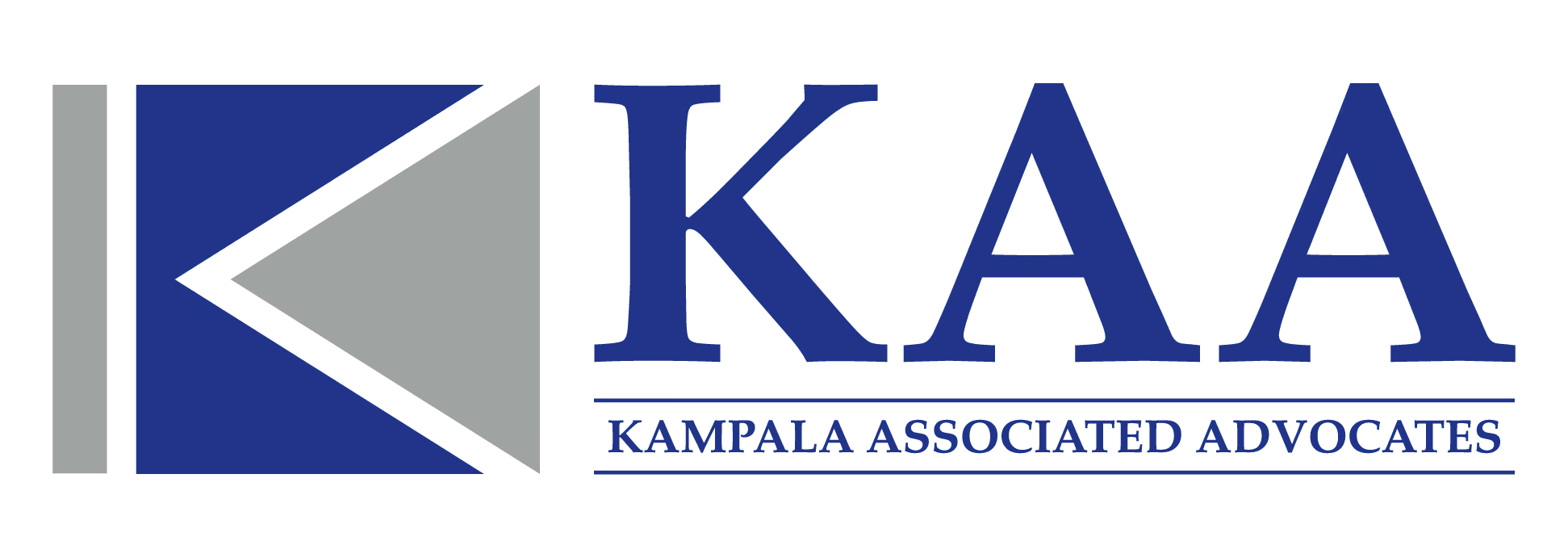
Kampala Associated Advocates is a premier law firm in Kampala offering effective Debt Collection services in Uganda, established in 2001, renowned for its high success rate and accolades such as Leading Business Law Firm of the Year, serving Uganda, Burundi, and beyond.
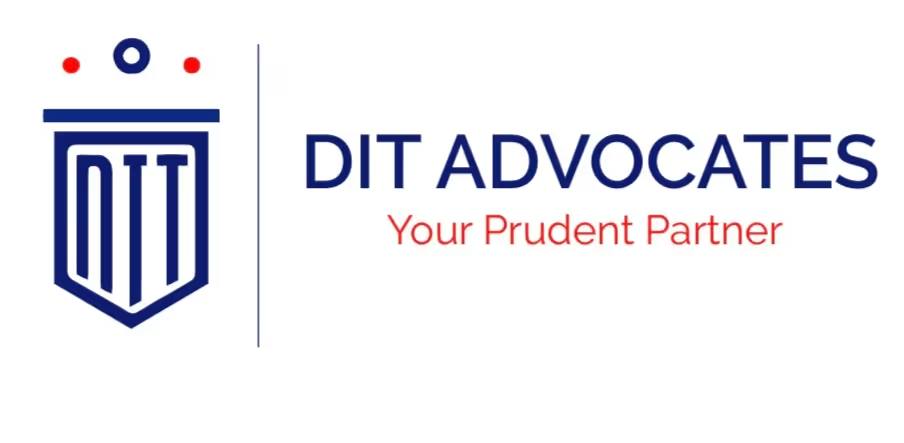
DIT Advocates is a premier law firm in Kampala offering effective Debt Collection services in Uganda, positioning the firm as the go-to partner for debt recovery since 2021, with a reputation bolstered by industry accolades and professional memberships.
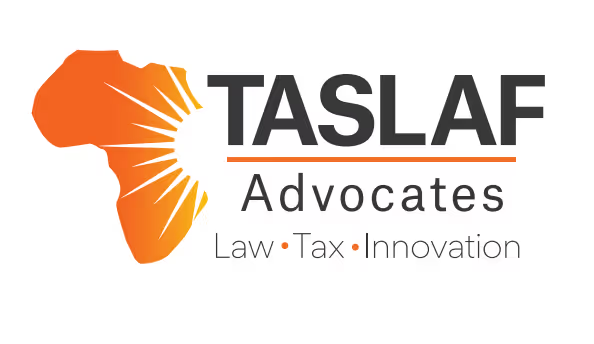
Taslaf Advocates is a premier law firm in Kampala offering effective Debt Collection services in Uganda, established in 2016, recognized by the Trust Law Awards, and serving clients across East Africa with memberships in IR Global and Thomson Reuters TrustLaw network.
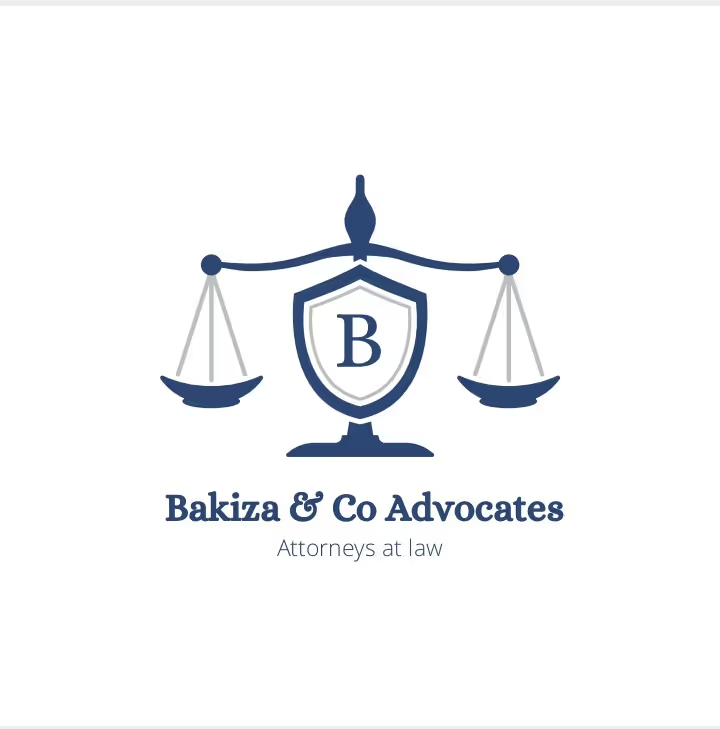
Bakiza and Company Advocates is a premier law firm in Kampala offering effective Debt Collection services in Uganda, established in 2001, known for its structured approach and professionalism, and a proud member of the East Africa Law Society.
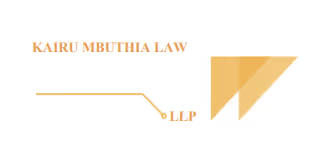
Kairu Mbuthia Law LLP is a premier law firm in Nairobi offering effective Debt Collection services in Kenya, positioning the firm as the go-to partner for debt recovery, founded in 2018, and recognized by the Real Estate and Finance Lawyers Hall of Fame 2023, with memberships in the Law Society of Kenya and the Chartered Institute of Arbitrators.

Muwema & Co. Advocates & Solicitors is a premier law firm in Uganda offering effective risk-free Debt Collection services, renowned as the go-to partner for debt recovery since 1999, with accolades including Uganda's Top 70 Law Firms and membership in the East African Law Society, as the exclusive Debitura partner in Uganda, offering No Cure No Pay debt collection based on Debitura’s risk-free standard terms and pricing.





.svg)

.webp)
.png)

.png)
.svg)












.webp)